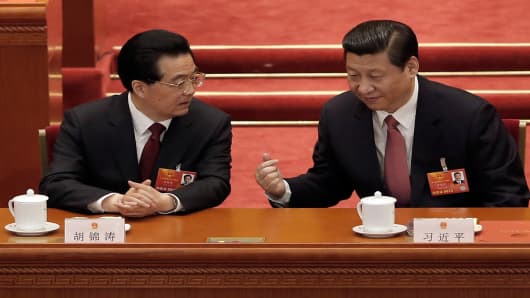Successful politicians in democracies are usually expert at tailoring their message to suit the audience and some of them take this versatility to great lengths.
When he was trying to capture the heart of the working man, Tony Blair famously claimed his favorite food was fish and chips. Yet when trying to appeal to a more trendy demographic his favorite meal became fresh fettuccine drizzled with olive oil, sun-dried tomatoes and capers.
Freed from the constraints of electoral tests and public campaigning, Chinese leaders have not traditionally been very good at this, preferring to leave their unchanging image management in the hands of Maoist propagandists and a sycophantic state media.
But that appears to be changing.
(Read More: China Must Meet 'High Standards' to Join TPP: US Trade Rep)
From what the world has seen so far of China's new leaders, Xi Jinping and Li Keqiang have learnt a thing or two from Western spin-doctors.
During his first annual press conference as premier last Sunday, Mr Li's words and demeanor were carefully crafted to present him to the nation as a peasant boy done good.
His choice of earthy simple language and the hints of country-boy accent belied the three decades he has spent as a Communist party official as well as his master's degree in law and PhD in economics from China's best university.
The command performance was augmented this week by a state media campaign lauding Mr Li's "down-to-earth work style".
Xi Jinping, China's newly-confirmed president, has also shown an ability to moderate his message and delivery style depending on who he is talking to.
(Read More: New China Leader Xi Meets US's Lew, Focus on Shared Aims)
In contrast, his predecessor, just-retired Hu Jintao, is often referred to in private as "wooden-face" and his public appearances were predictable in the extreme.
Mr Li's predecessor, Wen Jiabao, liked to be known as "grandpa Wen" and was the official in China's last administration who came closest to the kind of image management on display last weekend.
But he never quite managed to expand his repertoire and whether he was eating dumplings with coal miners or addressing the World Economic Forum he almost invariably came across as the genial geologist he trained to be.


